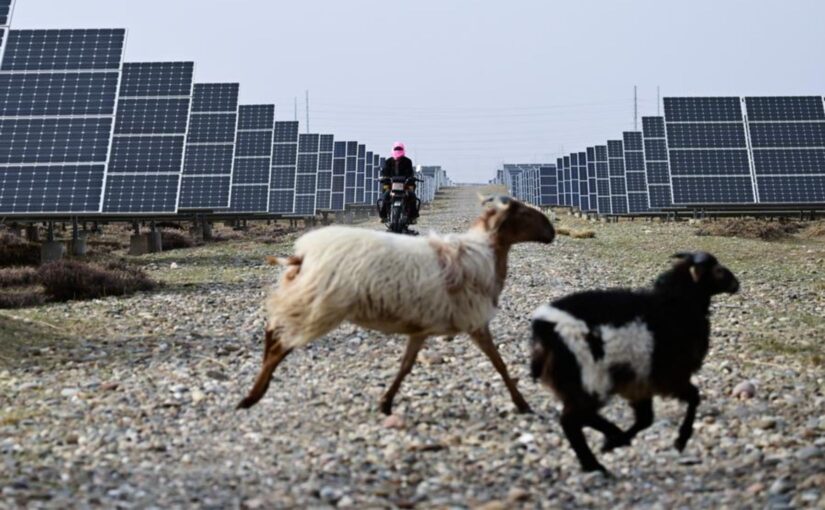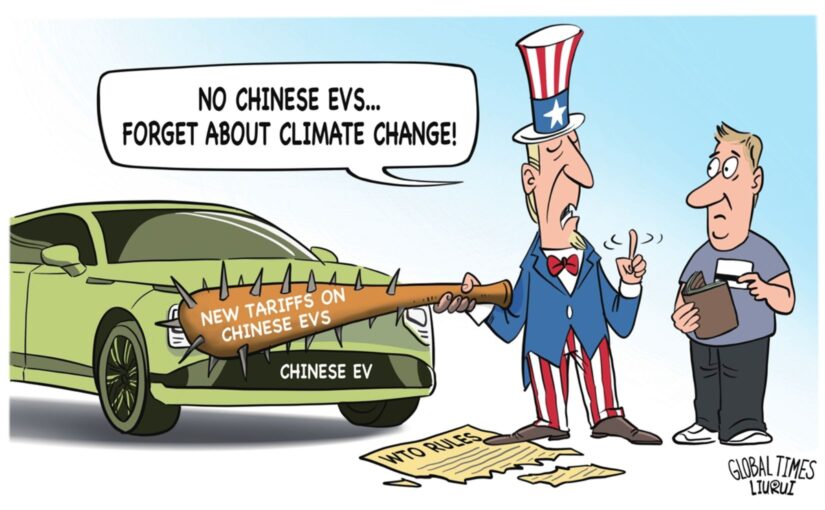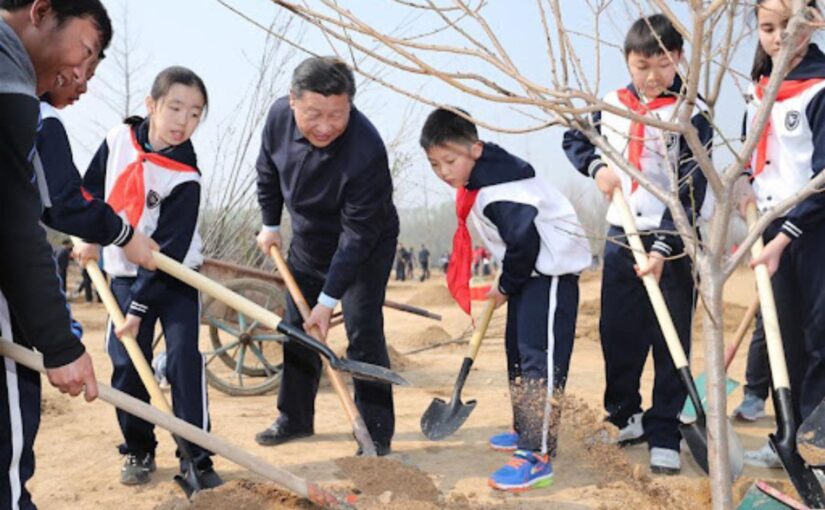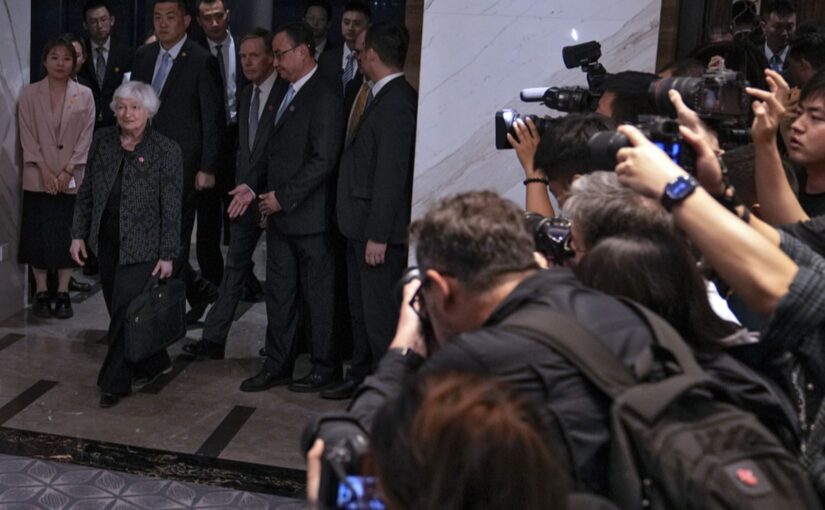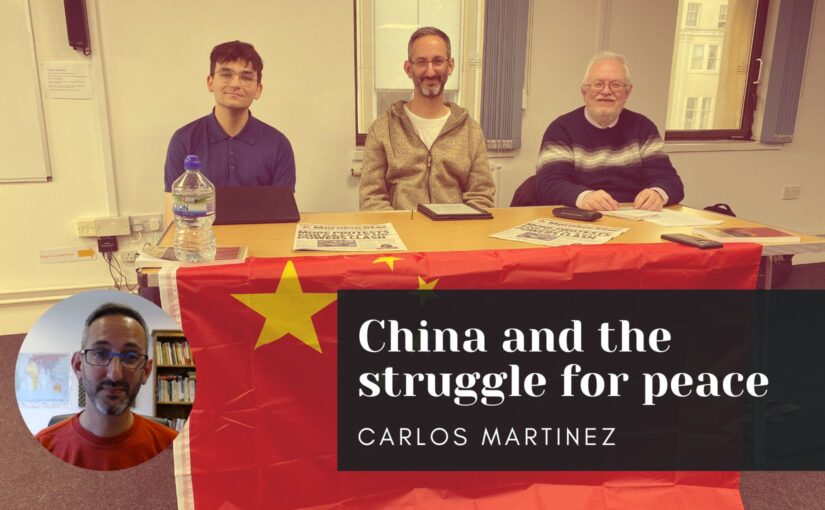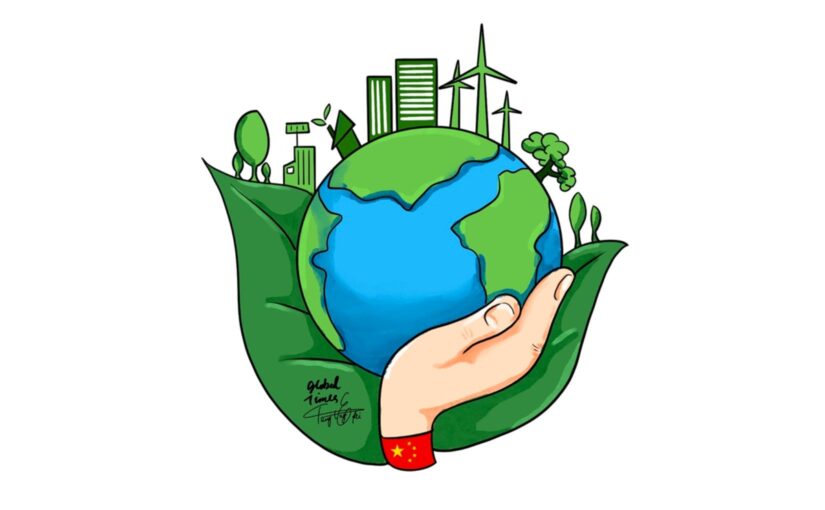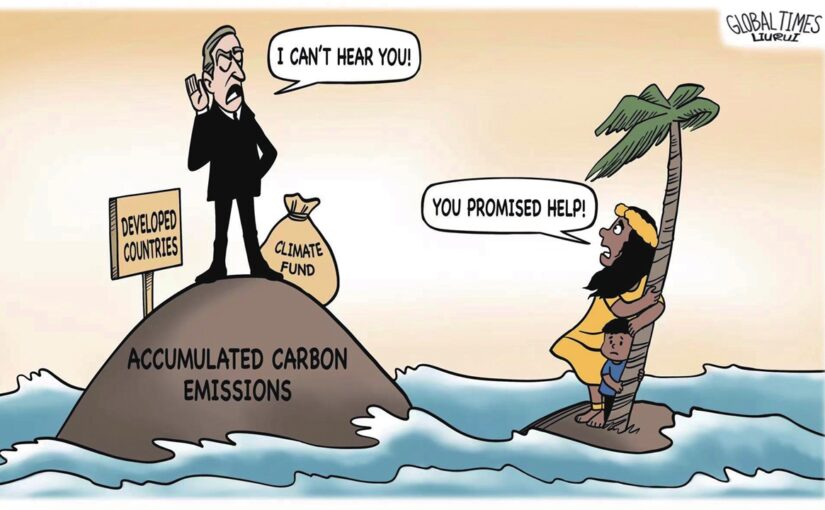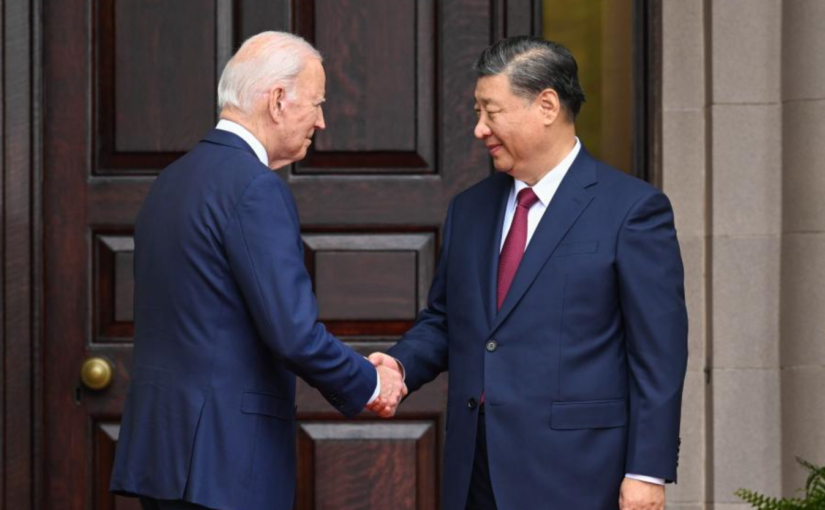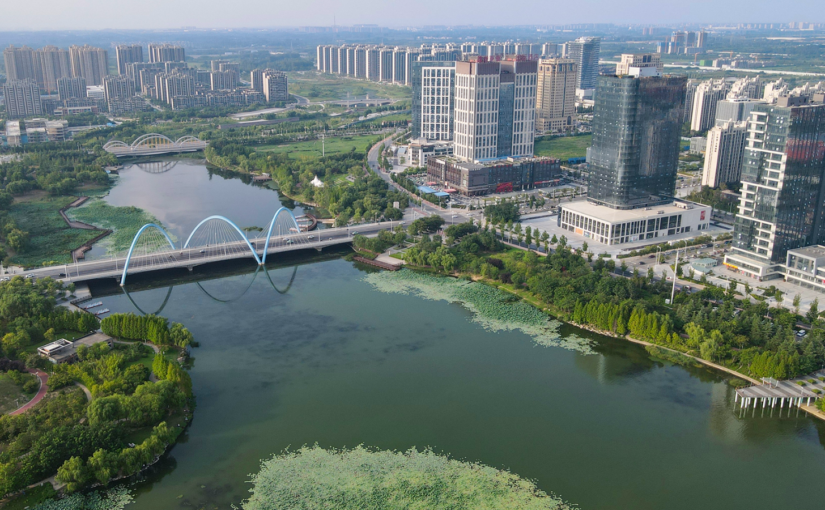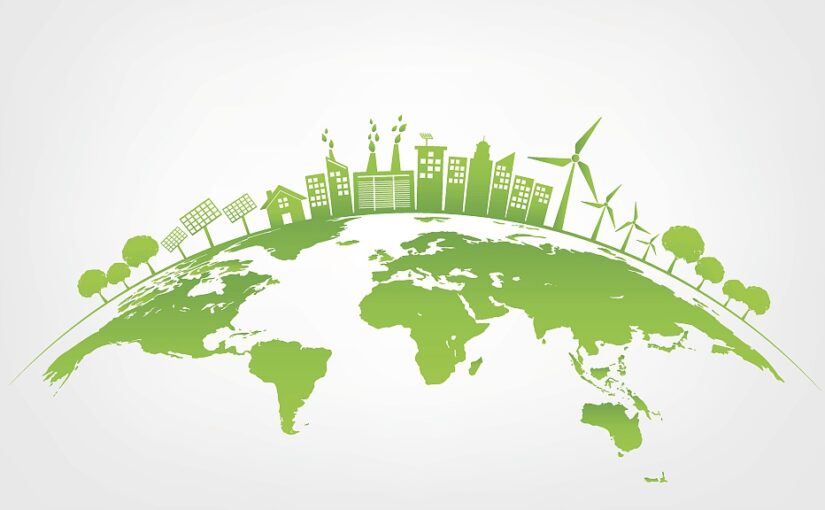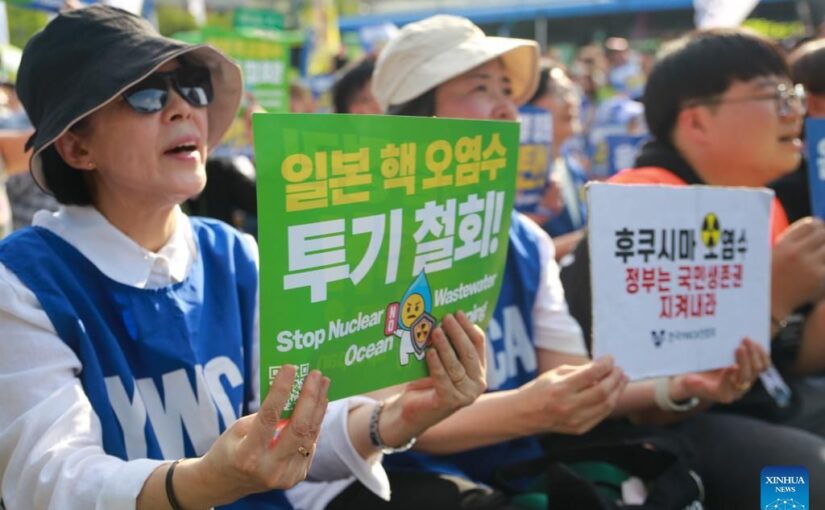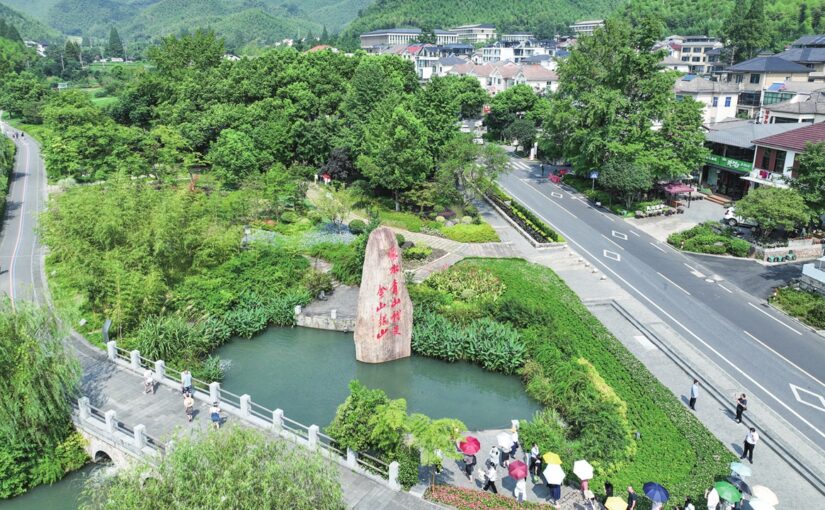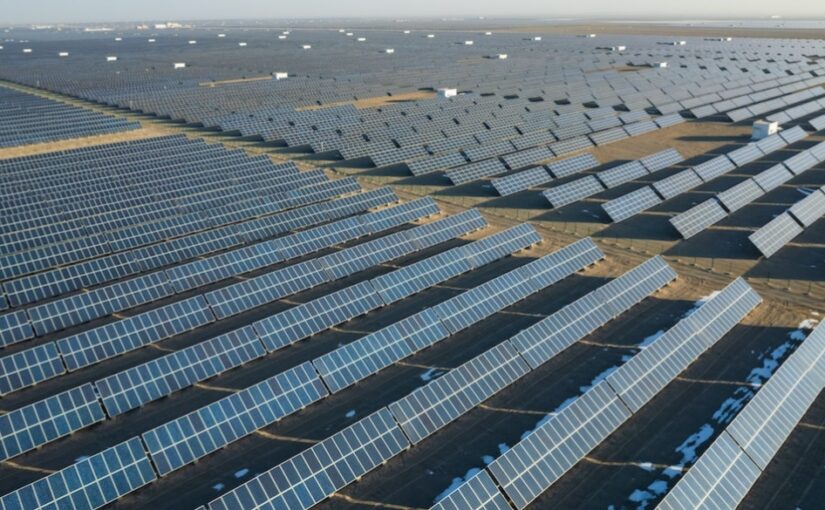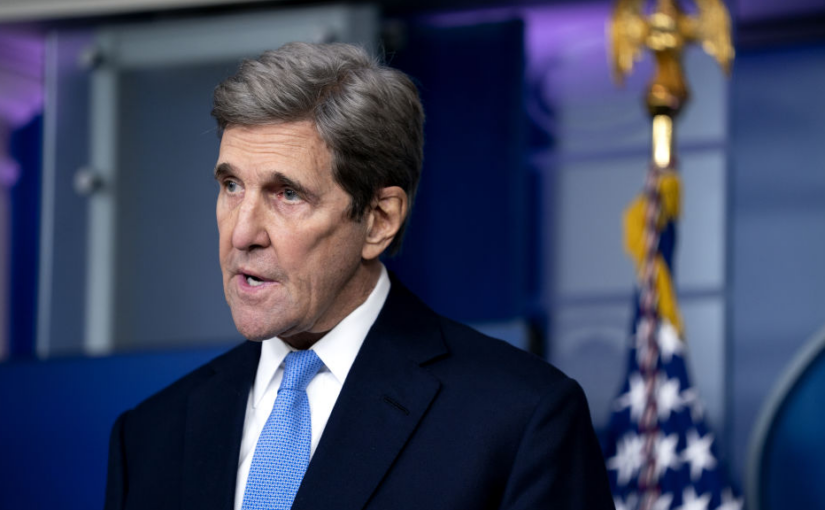The article below, republished from Xinhua, describes a remarkable story of ‘ecological civilisation’ in action, combining holistic ecological protection with poverty alleviation efforts.
Hainan Tibetan Autonomous Prefecture, in China’s western Qinghai province, is host to the world’s largest solar photovoltaic power plant, with a generation capacity of 8.4 GW (which would be sufficient to provide energy to the whole of London). Nearly 3,000 meters above sea level, and exposed to extreme levels of solar radiation, it is an area that has experienced significant desertification in recent decades: “By the end of the last century, the desertification rate of the land was as high as 98.5 percent, making the solar panels installed here vulnerable to damage from the sand and gravel stirred up by strong gusts of wind.”
More recently, because photovoltaic panels reduce wind erosion on vegetation, grass has been thriving. Meanwhile, in order to maintain the grass and to prevent the proliferation of weeds, sheep have been introduced to the solar park. This has given a major boost to livestock cultivation in the region, with people in the surrounding villages now raising “photovoltaic sheep”.
The plant is thus “simultaneously generating electricity while making exemplary contributions to poverty alleviation and ecological conservation efforts.”
Amid China’s green energy revolution, the world’s largest solar photovoltaic power plant on the Qinghai-Xizang Plateau is forging a unique development path, simultaneously generating electricity while making exemplary contributions to poverty alleviation and ecological conservation efforts.
In late May, greenness finally emerged in the yellow-gray expanse of the Talatan Gobi Desert in Gonghe County, part of the Hainan Tibetan Autonomous Prefecture in northwest China’s Qinghai Province.
Yehdor, a 48-year-old herder from Xaghelesi Village in Tiegai Township, leisurely rode his motorcycle, driving his flock of sheep into the solar photovoltaic power plant owned by Huanghe Hydropower Development Co., Ltd.
Yehdor is no stranger to solar photovoltaic panels, or what he calls “blue mirrors.” In 2006, he received two of these panels through a government project promoting solar power among locals. Since then, the panels have become part of his essential gear, accompanying his tent and other necessities during his six-month-long shepherding journeys each year.
“I set up the panels outside my tent, and they charged during the day, generating enough electricity to power lights and other small appliances throughout the night,” he said.
“However, they are nothing compared to these,” Yehdor added, pointing to the solar panels arranged in a matrix across 4,000 acres of desert land, sparkling like a silver-blue sea under the sun.
More than 200 sheep, a mix of black and white, were spotted roaming among the panels. As startling as it may sound, these sheep have been tasked with protecting the blue panels. Their voracious appetite, once a headache for environmentalists, has now become essential for maintaining the smooth operation of the solar power station.
In 2012, the prefecture initiated the construction of China’s first 10 million kilowatt-class solar power base in Talatan. Today, covering an area of 609 square kilometers, this solar power base boasts a power generation capacity of 8,430 megawatts, making it the largest in the world, according to Qeyang, deputy director of the administration committee of the Hainan prefectural green energy industry park.
It hosts 91 energy enterprises, which include 63 solar photovoltaic power enterprises and 28 wind power enterprises. “Green energy is the signature industry of Hainan prefecture and our annual output accounts for 54.08 percent of the total energy generated in Qinghai,” Qeyang said.
At a deliberation with the lawmakers from Qinghai during the annual session of the National People’s Congress in March 2021, Chinese President Xi Jinping gave instructions to build Qinghai into a highland of clean energies, a destination of international eco-tourism and a source of green and organic farm and livestock products, stressing efforts on fostering a green, low-carbon and circular economic system.
The Qinghai provincial government, since then, has accelerated its efforts to pursue high-quality development of the green energy industry based on local conditions.
Currently, the total installed power generation capacity in Qinghai is 54,970,800 kilowatts, with clean energy accounting for 51,079,400 kilowatts, or 93 percent, of the total. Talatan is also witnessing drastic changes.
Located about 150 kilometers from Qinghai’s provincial capital, Xining, Talatan sits nearly 3,000 meters above sea level and is bombarded with intense solar radiation, which hinders plant growth. By the end of the last century, the desertification rate of the land was as high as 98.5 percent, making the solar panels installed here vulnerable to damage from the sand and gravel stirred up by strong gusts of wind.
Continue reading Solar power farms on plateau fuel China’s green energy revolution